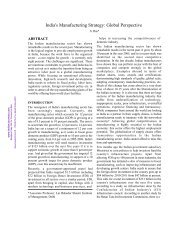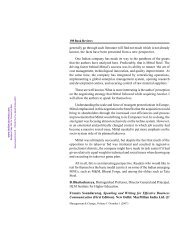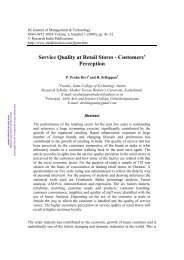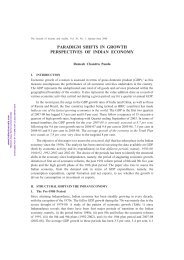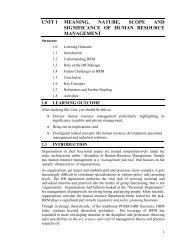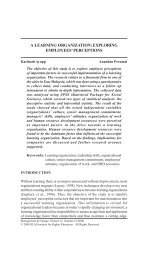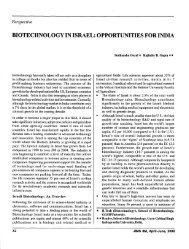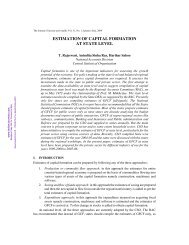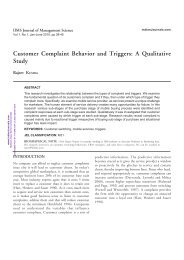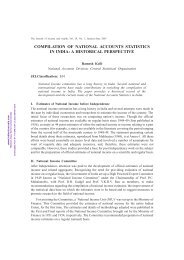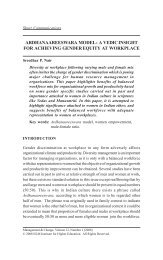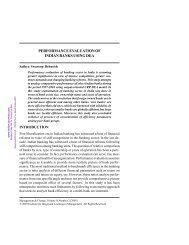Cultural Globalisation - Mimts.org
Cultural Globalisation - Mimts.org
Cultural Globalisation - Mimts.org
Create successful ePaper yourself
Turn your PDF publications into a flip-book with our unique Google optimized e-Paper software.
K SYAMALAMMA AND P KRISHNA MOHAN REDDY<br />
www.IndianJournals.com<br />
Members Copy, Not for Commercial Sale<br />
Downloaded From IP - 115.248.73.67 on dated 27-Dec-2010<br />
understanding. Successful multicultural societies, be they nations, federations or<br />
other conglomerations of closely interrelated states, discern those aspects of culture<br />
that do not threaten prosperity, stability or union (such as food, holidays, music<br />
and rituals) and allow them to flourish. Nevertheless, they do counteract or eradicate<br />
the more subversive elements of culture (exclusionary aspects of language, political–<br />
ideological beliefs and religion). Rothkopf added that history has shown that to<br />
bridge cultural gaps successfully and serve as a home to diverse people, society<br />
requires certain social institutions, laws and structures that transcend culture.<br />
Furthermore, the history of a number of ongoing experiments in multiculturalism,<br />
such as in the European Union, India, South Africa and the United States (US),<br />
suggests that workable, if not perfected, integrative models do exist.<br />
Current trends that fall under the broad definitional umbrella of globalisation<br />
are accelerating a process that has taken place throughout history as discrete groups<br />
become familiar with one another, ally and commingle—ultimately becoming more<br />
alike. The drivers of today’s rapid globalisation are improving methods and systems<br />
of international transportation, revolutionary and innovative information<br />
Successful multicultural societies<br />
discern those aspects of culture<br />
that do not threaten prosperity,<br />
stability or union (such as food,<br />
holidays, music and rituals) and<br />
allow them to flourish.<br />
Nevertheless, they do counteract<br />
or eradicate the more subversive<br />
elements of culture (exclusionary<br />
aspects of language, political–<br />
ideological beliefs and religion).<br />
technologies and services and<br />
dominating international commerce in<br />
services and ideas. Their impacts affect<br />
language, lifestyles, religion and almost<br />
every other component of culture.<br />
Technology today is not only<br />
transforming the world, it is creating its<br />
own metaphors as well. Satellites<br />
carrying television signals expose people<br />
on opposite sides of the globe to a wide<br />
range of cultural stimuli (ibid). The US<br />
is seen as dominating this global traffic<br />
in ideas and information—American<br />
movies, music, software and television are so dominant, so sought after and so<br />
visible that they are now available literally everywhere on the Earth. They influence<br />
the aspirations, lives and tastes of virtually every nation, although in some, they are<br />
viewed as corrupting (ibid). It is however, difficult to agree with this viewpoint,<br />
18<br />
WORLD AFFAIRS WINTER 2009 VOL 13 NO 4





